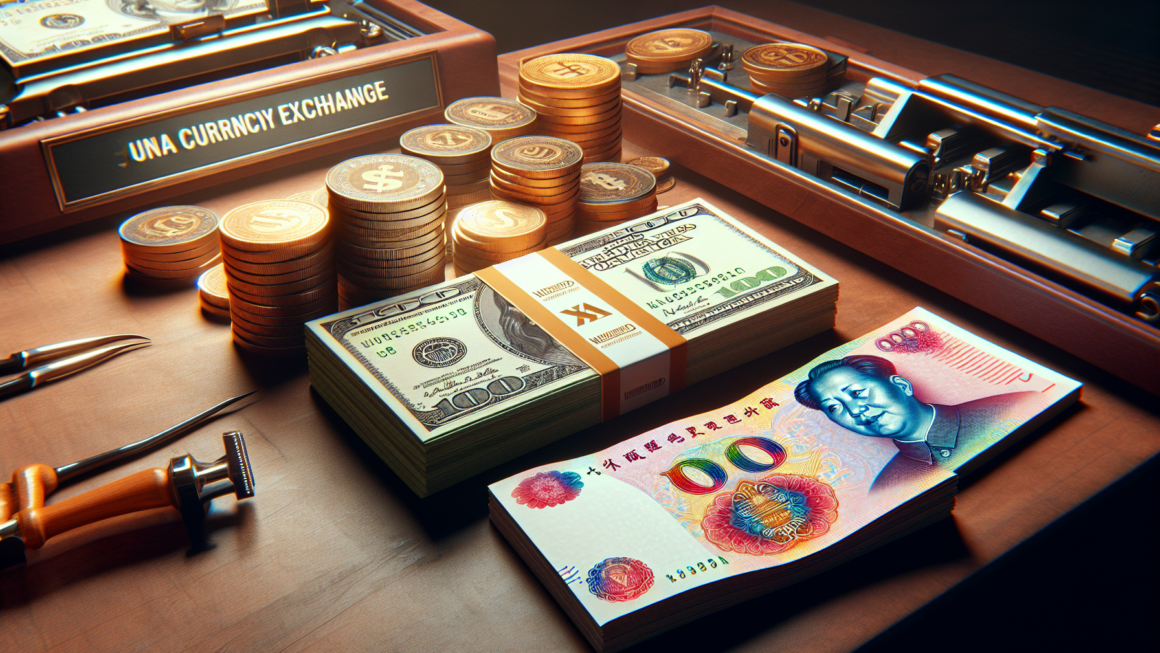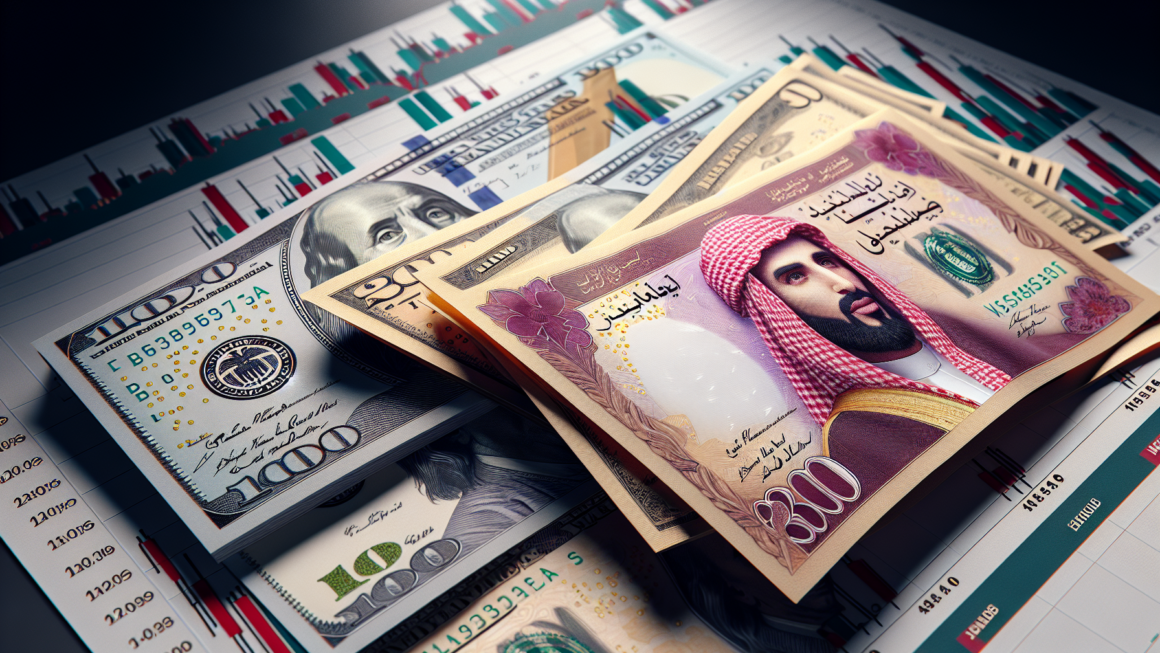Understanding the Chinese Yuan Renminbi (CNY)
The Chinese Yuan Renminbi (CNY) is the official currency of the People’s Republic of China. It is commonly referred to as the yuan, renminbi, or simply RMB. The yuan has gained significant global influence in recent years, playing an increasingly important role in international trade and finance.
Understanding the Chinese currency is essential for anyone conducting business in China or traveling to the country. In this article, we will explore the basics of the yuan, its exchange rate with the US Dollar (USD), and its growing prominence in the global financial landscape.
Chinese Currency Basics: Yuan, Jiao, and Fen
The Chinese currency has several denominations and units. The basic unit is the yuan (元), which is subdivided into jiao (角) and fen (分). One yuan is equal to 10 jiao, and one jiao is equal to 10 fen. However, the use of fen has been largely discontinued in modern times.
The most common banknotes in circulation are:
- 1 yuan
- 5 yuan
- 10 yuan
- 20 yuan
- 50 yuan
- 100 yuan
Coins are also used for smaller denominations, typically ranging from 1 jiao to 1 yuan.
The Issuing Authority: People’s Bank of China
The Chinese currency is issued and regulated by the People’s Bank of China (PBOC), which serves as the country’s central bank. The PBOC is responsible for formulating and implementing monetary policy, maintaining financial stability, and overseeing the banking system.
One interesting fact about Chinese banknotes is that they all feature the portrait of Mao Zedong, the founding father of the People’s Republic of China. The distinctive watermark of Mao’s collar can be seen when holding the banknotes up to the light.
USD to CNY: Exchange Rates and Conversion
When converting US Dollars to Chinese Yuan, it is essential to understand the exchange rate between the two currencies. The exchange rate determines how much yuan you will receive for a given amount of dollars.
Current USD to CNY Exchange Rate
As of June 19, 2024, the exchange rate is as follows:
| USD | CNY |
|---|---|
| 1 USD | 7.2561837 CNY |
| 1 CNY | 0.137813 USD |
It is important to note that this is the mid-market rate, which is used as a benchmark for currency conversion. However, when actually exchanging money or making international transfers, you may encounter different rates due to various factors such as bank fees, exchange rate spreads, and market fluctuations.
USD/CNY Exchange Rate Trends and Volatility
Exchange rates are constantly fluctuating based on various economic and political factors. Here are some key statistics regarding the USD/CNY exchange rate over the past 30 and 90 days:
| Period | Low | High | Average | Volatility |
|---|---|---|---|---|
| 30 Days | 7.2234 | 7.2560 | 7.2447 | 0.09% |
| 90 Days | 7.1993 | 7.2560 | 7.2356 | 0.10% |
As you can see, the exchange rate has remained relatively stable over the past few months, with low volatility. However, it is always advisable to monitor the latest exchange rates and trends before making any significant currency conversions or international transactions.
Yuan’s Growing Role in Global Finance
In recent years, the Chinese yuan has been gaining prominence in the international financial system. While it still lags behind major currencies like the US Dollar and the Euro, the yuan’s influence is steadily growing.
Yuan in Global Payments and Trade Finance
According to recent data, the yuan has become the fourth-most active currency in global payments and the third-most used currency in trade finance. This indicates a significant increase in the use of yuan for cross-border transactions and international trade settlements.
Pan Gongsheng, the governor of China’s central bank, reported that around half of China’s transactions with the world are now settled in yuan. This reflects the growing acceptance and preference for using the yuan in international trade, especially among China’s major trading partners.
Expectations vs Reality: Yuan as a Reserve Currency
In the years leading up to the global financial crisis of 2007-2008, there were high expectations for the yuan to become a major reserve currency. Some experts, like Fred Hu, a former Goldman Sachs analyst, predicted that the yuan would account for 15-20% of global foreign exchange reserves by 2020.
However, reality has not aligned with these optimistic projections. Despite the yuan’s inclusion in the International Monetary Fund’s Special Drawing Rights (SDR) basket in 2016, its share in global foreign exchange reserves remains modest, hovering around 2%.
The dominance of the US Dollar in international trade and finance has proven to be more resilient than anticipated. While the yuan has made significant strides, it still has a long way to go before challenging the dollar’s supremacy.
Fictional works like Gary Shteyngart’s satirical novel “Super Sad True Love Story” have imagined dystopian futures where the yuan surpasses the dollar. However, such scenarios remain firmly in the realm of fiction, at least for now.
Using Chinese Currency as a Traveler
If you are planning a trip to China, it is essential to familiarize yourself with the local currency and payment methods. Here are some key points to keep in mind:
Popular Payment Methods in China
While cash remains a common payment method in China, the country has rapidly embraced digital and mobile payments in recent years. Two of the most popular mobile payment platforms are WeChat Pay and Alipay, which are widely accepted in stores, restaurants, and even by street vendors.
To use these mobile payment methods, you typically need to have a Chinese bank account and link it to the respective app. As a traveler, you may find it more convenient to rely on cash or international credit cards, although some larger establishments may accept mobile payments from foreign users.
Exchanging and Withdrawing Money in China
When it comes to obtaining Chinese currency, you have several options:
- Currency Exchange: You can exchange your foreign currency for yuan at banks, hotels, or dedicated currency exchange counters. It is generally recommended to exchange money at banks for better rates and security.
- ATM Withdrawals: ATMs in China allow you to withdraw yuan using your international debit or credit card. However, it is important to check with your bank beforehand about any fees or restrictions on overseas transactions.
- Money Transfer Services: Companies like Western Union offer money transfer services that allow you to send or receive money in China. This can be a convenient option if you need to transfer larger amounts or if you don’t have access to a Chinese bank account.
It is important to note that Chinese currency is not widely accepted outside of mainland China. In regions like Hong Kong and Macau, different currencies are used (Hong Kong Dollar and Macanese Pataca, respectively). Additionally, most businesses in China do not accept foreign currencies like the US Dollar or the Euro.
When using your foreign debit or credit card in China, be sure to notify your bank in advance to avoid any potential issues or card blocks. Also, keep an eye on exchange rates and transaction fees to ensure you are getting a fair deal.
See also:




